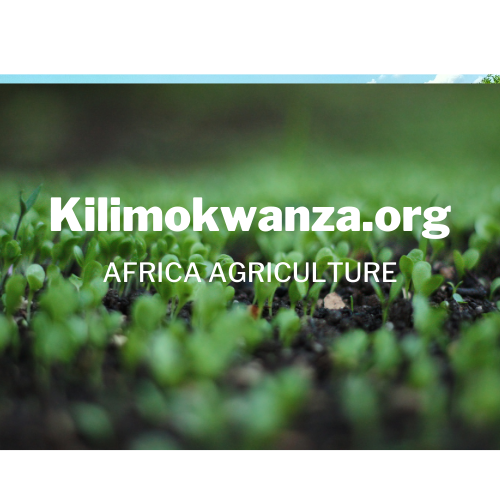
By Namanga Ngongi
The toxic combination of high food prices and revolt rolling across North Africa should give many African governments cause for great concern. While it is difficult to predict the future, I believe it is safe to say that African governments who fail to address the structural issues that undermine the continent’s food security do so at their own peril. Even small increases in the price of food seriously affect a family’s ability to put food on the table.
The World Bank estimates that the rapid, dramatic increase in the price of food staples this year has pushed an additional 44 million people into hunger and poverty. Nowhere is this problem more acute than in sub-Saharan Africa. Even though farming is the mainstay of most African economies and family incomes, the majority of Africans, even smallholder farmers, are net purchasers of food.
Millions of Africans in both rural and urban areas spend a significant portion of their income on food, up to 70 percent for some of the poorest. It does not take a large rise in food prices to tip millions into poverty.
Yet while the world struggles with instability that is directly related to food insecurity, there are promising signs that many governments across Africa, such as the one in Tanzania, are putting measures in place to ensure food security, stability and economic growth, setting the continent firmly on the path towards the achievement of a green revolution.
The first step towards ensuring a food-secure, prosperous and stable Africa begins with putting farmers first. Farmers, and in particular smallholder farmers—most of them women—must be supported by an enabling policy environment. Policymakers must ensure that they develop progressive agricultural policies that ensure farmers have access to good quality seed and appropriate fertilizers to replenish depleted and washed-out soils. Farmers need access to finance for these investments.
Before they invest in inputs, farmers need assured access to good, predictable markets. Governments must work hard to confront and deal with the many challenges along the agricultural value chain to turn agriculture into a profitable business, especially for smallholder farmers. In Tanzania, strong national leadership and good policies focused on creating opportunities for smallholder farmers are leading to transformations in the countryside and new investments.
The government’s Green Revolution strategy, “Kilimo Kwanza (Farmers First),” is driving Tanzania’s rapid emergence as an agricultural powerhouse and regional breadbasket. The Alliance for a Green Revolution in Africa (AGRA) led by former UN Secretary-General Kofi Annan fully supports the efforts of Tanzania’s leadership to put farmers at the forefront of its efforts to buffer Africa and its people from the negative impact of spikes in food prices, climate change, and other threats to our security and stability.
While we applaud the good efforts by the Tanzanian government, special attention must be given to two areas that have enormous potential to spur even faster agricultural growth in the country.
First, the production and distribution of certified seed must be accelerated. For this to be done, access to foundation seed should be opened up to private-sector seed companies. Second, the volume of fertilizers used by farmers needs to be increased; efforts to develop local phosphate deposits—Minjingu fertilizer—are to be applauded.
Additional efforts are needed to address challenges that block access to credit by farmers and smallholder farmers in particular. AGRA is optimistic about Africa’s future and believes that the progress we have seen in countries like Malawi, Tanzania and Ghana proves that African countries have the commitment and resources necessary to transform agriculture into an engine of growth and prosperity.
As our board chairman Kofi Annan has often said, our continent has the capacity not only to feed its own citizens but also to help meet the needs of the hungry across the world. To catalyze the achievement of this vision in Tanzania, AGRA is working closely with the government and other stakeholders to marshal resources towards the cultivation of “breadbaskets” in high-potential areas of the country, starting with the Southern Highlands. Ghana, Mali, and Mozambique are other African countries in which AGRA is developing breadbasket regions. Tanzania’s effort to improve agriculture is being noticed by the international community.
Mr. Annan is leading a delegation of our board to witness firsthand the changes that are being made as a result of strategic investments in agriculture by the government of Tanzania.
AGRA, working with the government and partners, will support programs that lead to environmentally sustainable production increases and access by farmers to predictable and remunerative markets. Together we can make food insecurity, hunger and malnutrition things of the past.
– END –
The author is the President of AGRA.
AGRA is an Africa based organization working in partnership with governments, agricultural research organizations, farmers, private sector, civil society and other rural development stakeholders to significantly and sustainably improve the productivity and incomes of resource poor farmers in Africa. AGRA’s programs in the areas of seeds, soil health, market viability, supportive policies and innovative finance work to bring about transformational change across the agricultural value chain. Funded initially by the Rockefeller Foundation and the Bill and Melinda Gates Foundation, AGRA is chaired by Kofi Annan and has offices in Nairobi, Kenya and Accra, Ghana. For more information, please visit: www.agra-alliance.org